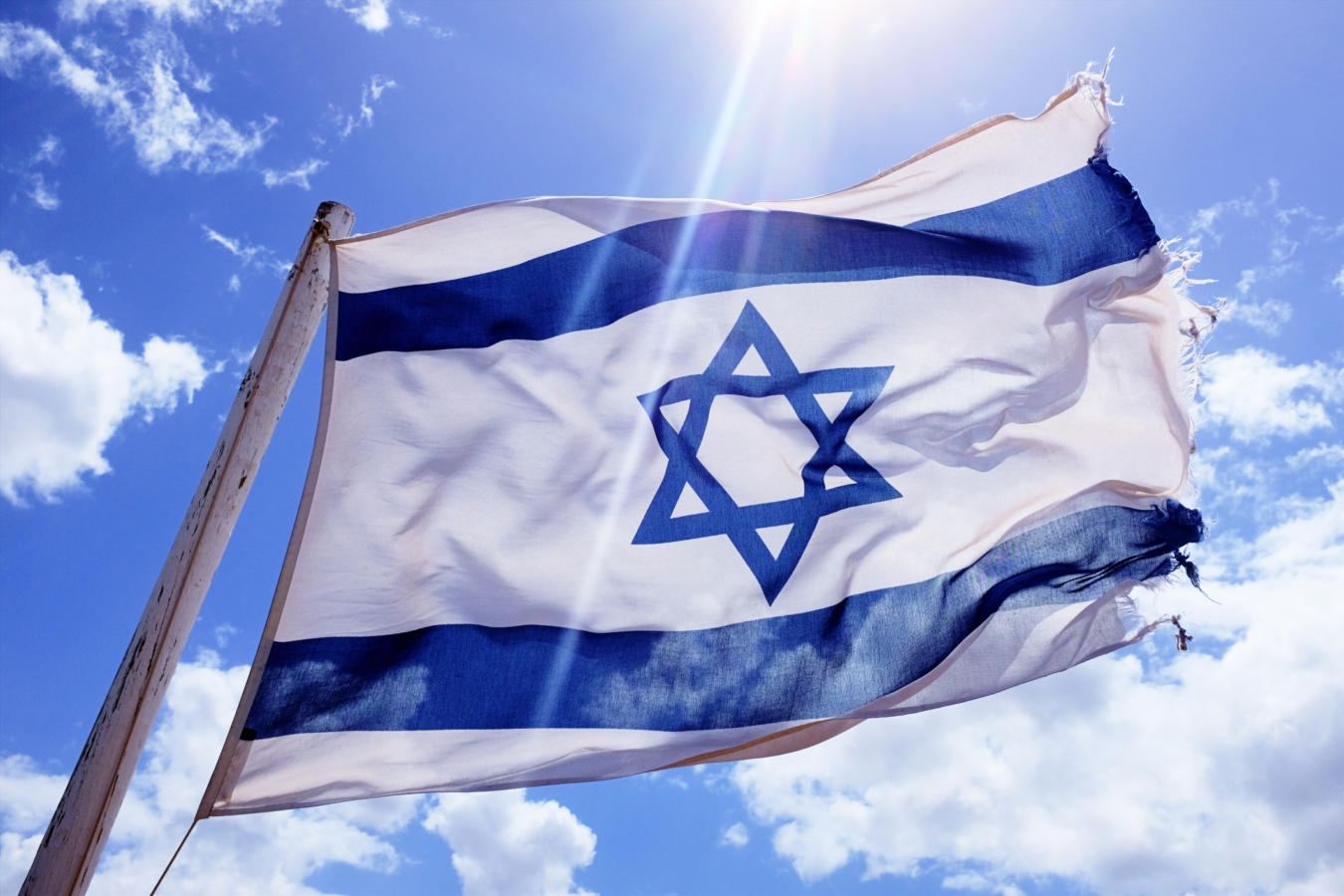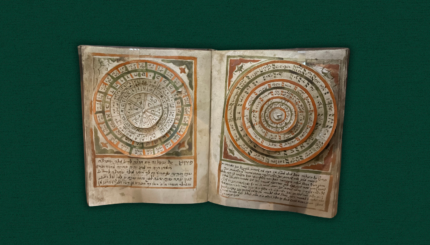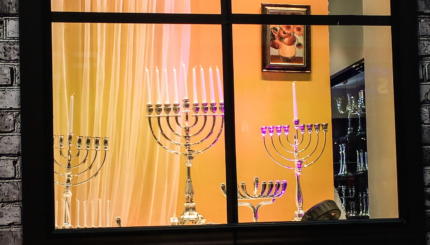There is a wide variety of ways in which Jewish communities religiously commemorate Israel’s Independence Day, many involving special prayers for the day. The following article surveys some customs that have developed since the founding of the state in 1948.
While not widely adopted in the Diaspora, special liturgies [of Yom Ha’atzmaut] are fairly common in Israel, where government leaders regularly attend the festive prayer services. The one for the evening, designed by Israel’s Chief Rabbinate in 1949, begins with psalms of thanksgiving (Psalms 107, 97, 98) and ends with a single blast of a shofar and a prayer that as we have witnessed the beginning of redemption, we will also merit hearing the shofar announcing the messiah.
Their morning service includes the introductory psalms customarily recited on Shabbat and festivals, Hallel, also recited on festivals but here without the introductory blessings, and, again without the preceding blessings [for the haftarah], the prophetic portion Isaiah 10:32- 11:12. A preview of the messianic era, it contains the familiar line, “The wolf shall dwell with the lamb, the lion lie down with the kid” (Isaiah 11:6).
The choice of this particular reading suggests the Rabbinate’s belief that Israel’s independence is in fact redemption on par with the Exodus, since the same haftarah [prophetic reading] is read in the Diaspora on the last day of Passover. Still, many rabbis were and are reluctant to put the two in the same category. That is why they omit the blessings: It is fine, and appropriate, to express gratitude to God for this incredible shift in our national fortune–so we say Hallel. But if this is not the historic redemption we have been waiting for, the introductory blessing–which states that our recitation is a commandment of God–along with God’s name, would be said in vain. The same reasoning holds for the haftarah.
With your help, My Jewish Learning can provide endless opportunities for learning, connection and discovery.
Not everyone has agreed with the rabbis’ reticence. Some feel that the official service comes up short in reflecting the magnitude of the unique occurrence it celebrates, one which fits the pattern of exile and redemption recurrent throughout Jewish history. So organizations and congregations on their own say the blessings prior to Hallel and the haftarah. They include the shehecheyanu, in thanks for being brought to this point, which is fully accepted as appropriate for anyone who regards Israel independence as an occasion of real joy. During the Amidah [the silent prayer that is the center of all Jewish prayer services],they recite Al Hanissim (“For the Miracles”), just as we do on Hanukkah and Purim.
Some also read the Torah (Deuteronomy 7:1-8:18, describing what would happen after the Israelites entered the Land, or Deuteronomy 30:1-10, about being returned to the Land after exile and misfortune). A prayer for the welfare of the State of Israel, one in memory of those fallen, prayers for Jerusalem, and a Zion Lover’s Prayer have also been added to services, along with the song expressing belief in the coming of the messiah, “Ani Ma’ amin.” Many of these changes were incorporated into the machzor (festival prayer book) developed by Hakibbutz Hadati (the religious kibbutz movement).
Communities around the world have added their own touches. An announcement of the number of years since the establishment of the state prior to sounding the shofar at the Ma’ariv [evening] service is modeled on the Yemenite Tisha B’Av custom of proclaiming the number of years since the destruction of the Temple. Ma’ariv in some communities is chanted to the yom tov nusah (holiday melody).
A Tikkun L ‘Yom Ha’atzmaut, an anthology of readings and prayers (parts of Kabbalat Shabbat, Shema, Leshanah Haba B’Yerusha/ayim, Shir Hama’ alot–perhaps sung to the tune of Israel’s national anthem–and Ani Ma’amin), is used by some Moroccan and other congregations for Ma’ariv and Shacharit. Some add Psalm 27 (“The Lord is my light and my help”).
The Conservative movement prayer book includes a customized version of Al Hanissim along with suggested readings related to Israel. The Reform movement prayer book includes a service written especially for Independence Day.
Excerpted with permission from Celebrate! The Complete Jewish Holiday Handbook (Jason Aronson Inc.).
Hanukkah
Pronounced: KHAH-nuh-kah, also ha-new-KAH, an eight-day festival commemorating the Maccabees' victory over the Greeks and subsequent rededication of the temple. Falls in the Hebrew month of Kislev, which usually corresponds with December.
Shabbat
Pronounced: shuh-BAHT or shah-BAHT, Origin: Hebrew, the Sabbath, from sundown Friday to sundown Saturday.
Torah
Pronunced: TORE-uh, Origin: Hebrew, the Five Books of Moses.



